CIA using technique to impersonate Russian hackers: Leaks
The CIA has routinely used techniques that enable the spy agency’s hackers to stage false-flag operations in cyberspace and leave behind “fingerprints” of hackers from Russia, according to the latest internal documents published by WikiLeaks.
The whistle-blowing website said on Tuesday that it had obtained and published thousands of documents from the Central Intelligence Agency that reveal its hacking and spying secrets.
One section titled “Umbrage” details the CIA’s ability to impersonate cyber-attack techniques used by hackers in Russia and other countries.
The explosive leaks provide potential ammunition to supporters of President Donald Trump, who claim the alleged Russian hacking attacks against the 2016 presidential election could be a false-flag operation carried out by his domestic foes.
In theory, the hacking technique enables the CIA to fake digital forensic fingerprints to make the Russians look guilty of infiltrating the Democratic organizations such as the Democratic National Committee (DNC).

The CIA rules say agency hackers must deploy cyber tools in a way that could not be traced back to the "CIA, U.S. government, or its witting partner companies," according to WikiLeaks.
In addition, the documents showed that the CIA sneaks into high-tech phones and televisions to spy on users around the world.
“I suspect many will be outraged by this development, and will assume that the CIA used these techniques broadly to surveil American citizens through their TVs, smartphones, computers, and other devices,” Jeff Williams, chief technology officer and cofounder of Contrast Security, was quoted by the Wired magazine.
WikiLeaks claimed that nearly all of the CIA's cyber tools have been stolen and are potentially in the hands of foreign spies and former US government hackers and contractors.
"I am deeply disturbed by the allegation that the CIA lost its arsenal of hacking tools. The ramifications could be devastating," Congressman Ted Lieu of California said in a statement. "We need to know if the CIA lost control of its hacking tools, who may have those tools, and how do we now protect the privacy of Americans."
"The potential privacy concerns are mind-boggling," he said.
The anti-secrecy website said it published the documents to expose the hazardous ramifications of the CIA's covert hacking program as well as the massive theft of its cyber weapons.
The CIA has declined to confirm whether the documents are genuine.
"We do not comment on the authenticity or content of purported intelligence documents," said Heather Fritz Horniak, an agency spokeswoman.
The publication has also highlighted profound fear about the vulnerabilities of classified intelligence and documents in federal agencies.
"We've got to do a lot more," Senator John McCain told reporters Tuesday afternoon. "If they can hack the CIA, they can hack anybody."

"My biggest worry is they showed a capability that they can hack into some of our most important secrets, our most important classified material, that's what bothers me," the Arizona Republican added.
Asked if he believed Russia was involved in the CIA hack, McCain sarcastically said, "No, never, never… Somebody in the basement of his house smoking cigarettes in his underwear was responsible."
The sharp retort appeared to be a reference to Trump's claim before his election that the DNC hacking could have been carried out by anyone from the Chinese to a "400-pound guy" lying in his bed somewhere in the US.
The WikiLeaks dump came amid an ongoing feud between President Trump and the US intelligence community over Russia’s alleged efforts to influence the November election in favor of the Republican billionaire.
Trump has also claimed, so far without offering any evidence, that his successor, Barack Obama, had his telephones tapped during the campaign. The new president called for Congress to investigate his claim.
Top Republicans investigating Russia's alleged interference in the US election declined Tuesday to back up Trump’s wiretapping allegations.
Devin Nunes, the chairman of the House Intelligence Committee and one of Trump's strongest supporters in the lower chamber, said, “At this point, we don’t have any evidence of that.”
“As you all know, the president is a neophyte in politics. And I think a lot of the things he says, you guys sometimes take literally,” Nunes said at a press conference.

Meanwhile, White House spokesman Sean Spicer defended Trump’s charge against Obama when asked if the president regretted his accusation.
“No. Absolutely not,” Spicer said during his first on-camera briefing in more than a week. “Why would he withdraw it until it’s adjudicated? It’s not that he’s walking anything back or regretting.”
However, when he was pressed by reporters for proof, Spicer said, “That’s probably a level above my pay grade.”
“It’s not a question of new proof or less proof or whatever,” he added.
Yemeni armed forces down F-18 fighter jet, repel US-UK attack: Spokesman
Iran warns against US-Israeli plot to weaken Muslims, dominate region
VIDEO | Public uproar in US against Israeli regime
‘Ghost town’: 70% of Jabalia buildings destroyed by Israel
Mother’s Day: Sareh Javanmardi’s inspiring journey as Paralympic champion and mother
Russia downs over 40 Ukrainian drones as Putin vows 'destruction' on Kiev
VIDEO | Yemen: A bone in Israeli neck
D-8’s role in Iran’s economy after Cairo summit


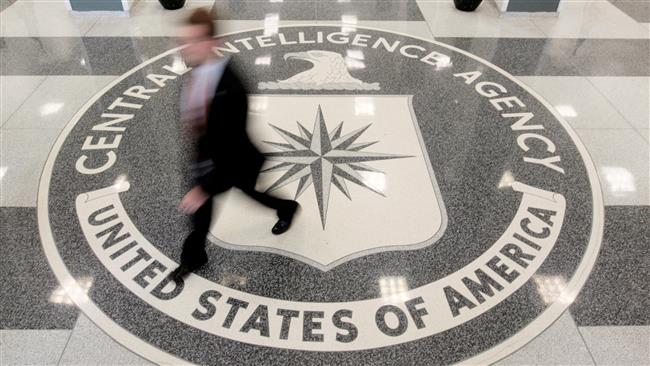


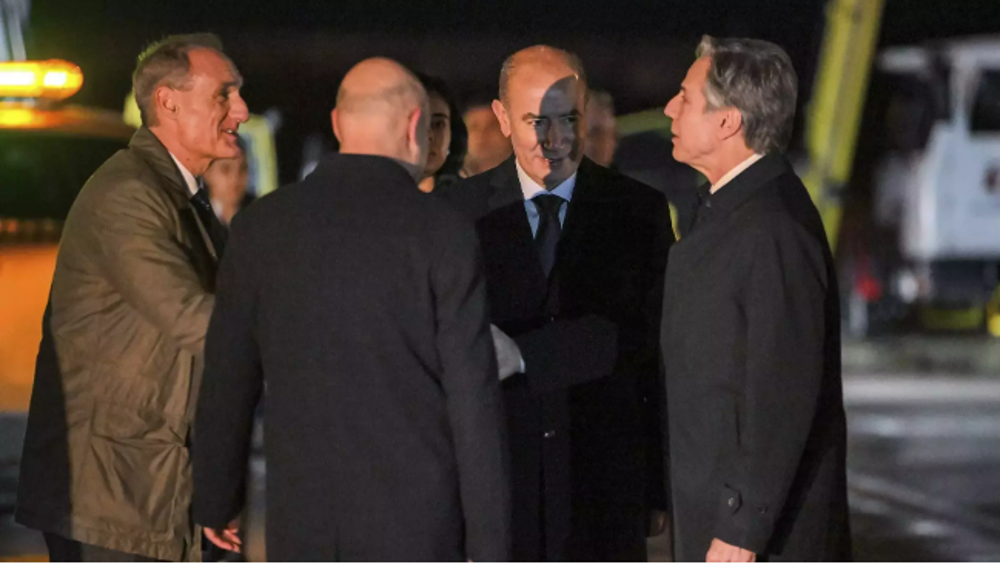



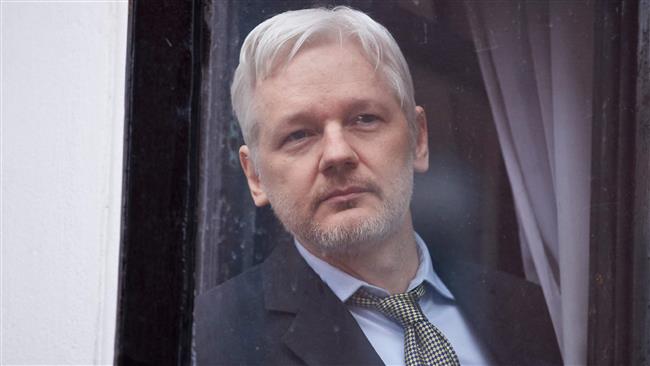
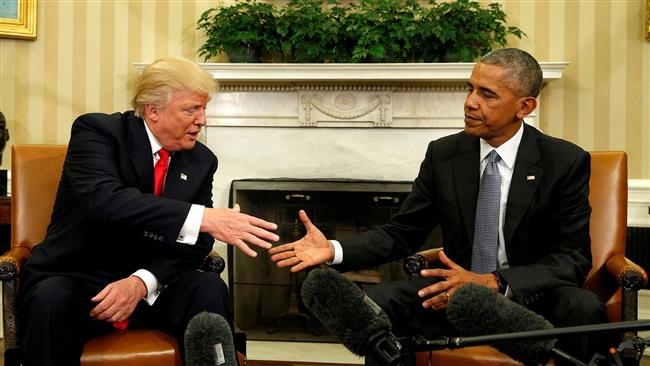
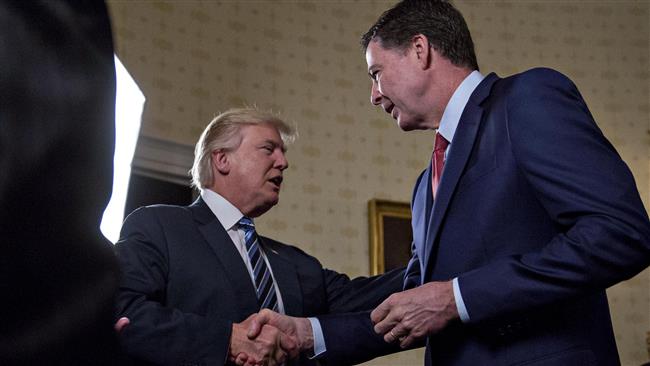
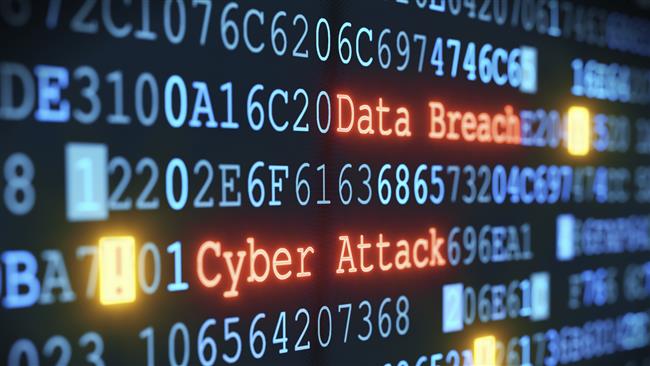
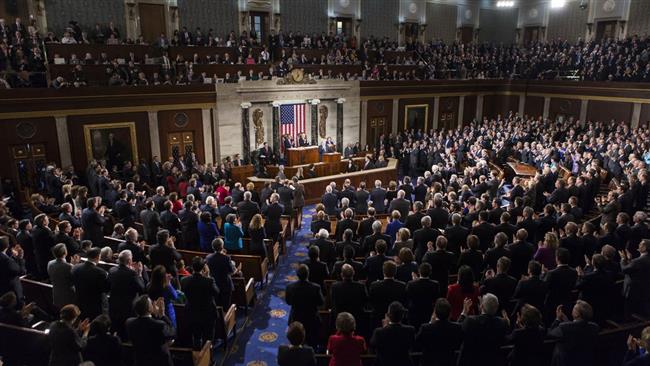
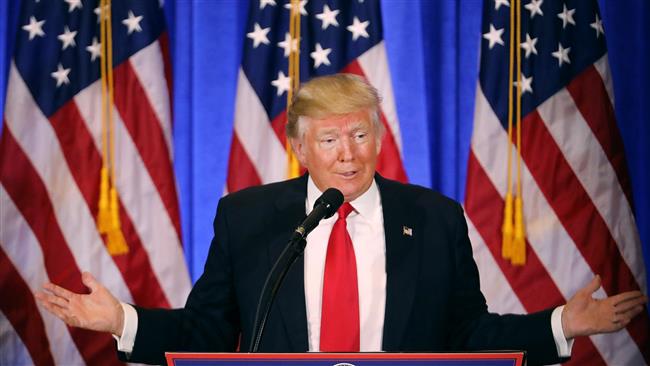

 This makes it easy to access the Press TV website
This makes it easy to access the Press TV website